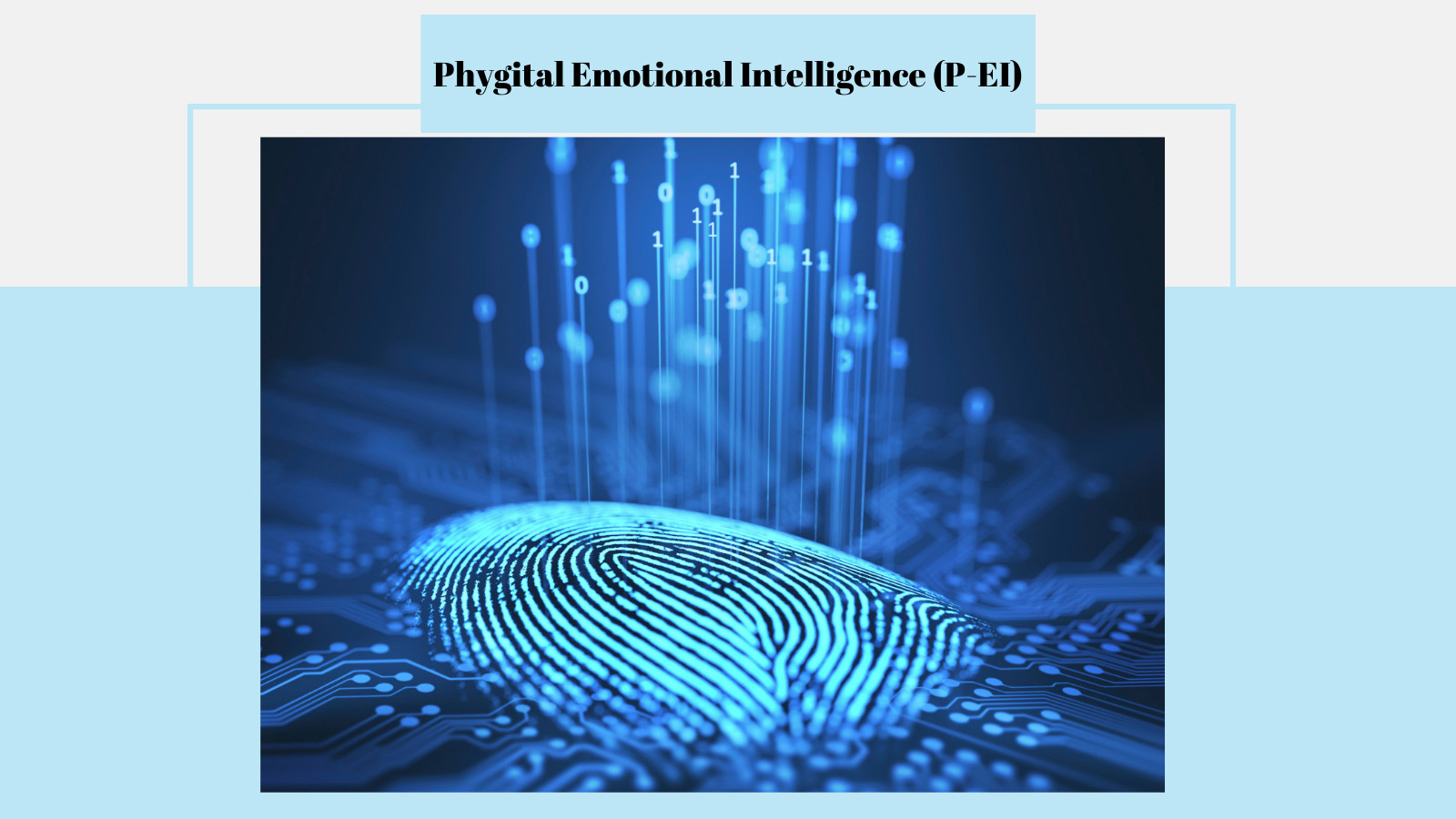DATE
October 5, 2022
CATEGORY
Blog
SHARE

You are all familiar with Emotional Intelligence (EI). Daniel Goleman describes emotional intelligence as a person’s ability to manage his own emotions and feelings so that those emotions and feelings are expressed appropriately and effectively.
Goleman writes that emotional intelligence is the largest single predictor of success in the workplace.
But what is Phygital Emotional Intelligence or P-EI?
P-EI is built on the existing definition of Emotional Intelligence (EI).
Phygital Emotional Intelligence (P-EI) can be defined as the ability to phygitally sense emotional response, our own or other people’s, and to use these emotive feelings to guide thinking, behavior, and decisions.
Let us examine the five parameters of Phygital Emotional Intelligence
I] Phygital Self-Awareness
Developing phygital self-awareness is a meaningful long-term investment. As an example, are you aware of how much distress you may cause to your friends, colleagues or family members when you spend more time on your all-round devise, the Smartphone and neglect them?
A phygitally self-aware person will not use the Smartphone as his virtual office when with colleagues at the workplace, or in a meeting with friends, or at home with spouse and kids.
You will rather engage with them, speak to them and importantly, and listen to them aggressively.
II] Phygital self-control
How will you respond to social media posts which cause you anger?
More often than not, your offline behaviours are mirrored online. Positive, healthy behavior offline complements your online behavior. So work on your offline self-control.
Example, how will you respond to an offending post on LinkedIn? Say an unprofessional comment or a criticism of your intelligence or thinking? Should you ignore it?
You have received a nasty comment from your competitor, Salim Ali. I would rather suggest something like this.
“Thank you so much Mr. Salim Ali for reading my post and taking the time to add a comment to my post.”
“I generally reply to all comments received immediately, as I want to demonstrate to my LinkedIn community that I actually read all comments, positive or negative.”
“I respect what you have said; nevertheless, it is obvious we share different points of view on this subject. I would have appreciated if you would have valued my views too.”
“While you could have easily scrolled by, you stopped to comment on my post. I am thankful to you. And by doing so, you have helped me by broadcasting my post out to those in your network.”
“So, thank you once again Salim, and have a lovely day ahead.”
This is how you could take charge of your phygital self-control. Your LinkedIn community will perceive you as a dignified person who values contrary views, yet doesn’t get offended.
III] Phygital self-motivation
Take webucational seminars for instance; self-motivation is essential for online learning. Self-motivation of most participants starts out high at the beginning of a session, but this may dip at certain points.
The online speakers have the responsibility to create an environment where the participants get self-motivated. And is there a better way than using online case study method or fully engaging them through polls and quizzes?
Speakers can also incorporate gamification and encourage interactive sessions rather than one-way delivery which may lead to boredom or participant’s dropping out.
IV] Phygital empathy
Phygital empathy is the application of the core principles of empathy – feeling the feelings of others – during phygital interaction
Example, what happens when you are online as a speaker and when your Smartphone is in an active mode?
- You cut off the phone – Have you considered the feelings of the person who is trying to call you? At least I feel offended and insulted.2. Keep your phone on silent mode – I feel that I am being neglected when my call is not attended.
- Keep your phone on a vibrator mode – You get distracted and so does the listener. This is certainly not netiquettes.4. Pick up the phone and say: “Shall call you soon” – sends a message to the rest in the audience that your heart, mind and soul are not immersed in the proceedings and you are casual about your online presence. Otherwise, why the hell will you pick up that call?
What is the solution?
I keep my Smartphone in an airplane mode. It sends a message that you are out of reach. May be you are not in a network area or you are in a flight or a train. Very low chances of offending the other person!
This will seldom send inappropriate messages.
V] Phygital social skills
Phygital social skills are a culmination of all the four above. Practice these four and you will be high on P-EI.
That’s how you earn virtual friends who may often become real friends.
Phygital transformation is also developing a high level of P-EI, PHYGITAL EMOTIONAL INTELLIGENCE.
These are some powerful mechanisms to enhance you P-EI. These 21st century skills, specifically inter-personal (e.g., being empathetic, taking others’ perspectives) and intra-personal skills (e.g., persistence and self-control) can project you as a professional with a high degree of P-EI.
You are on the way to becoming and influencer in the social media.
Source: PharmaState – www.pharmastate.academy






